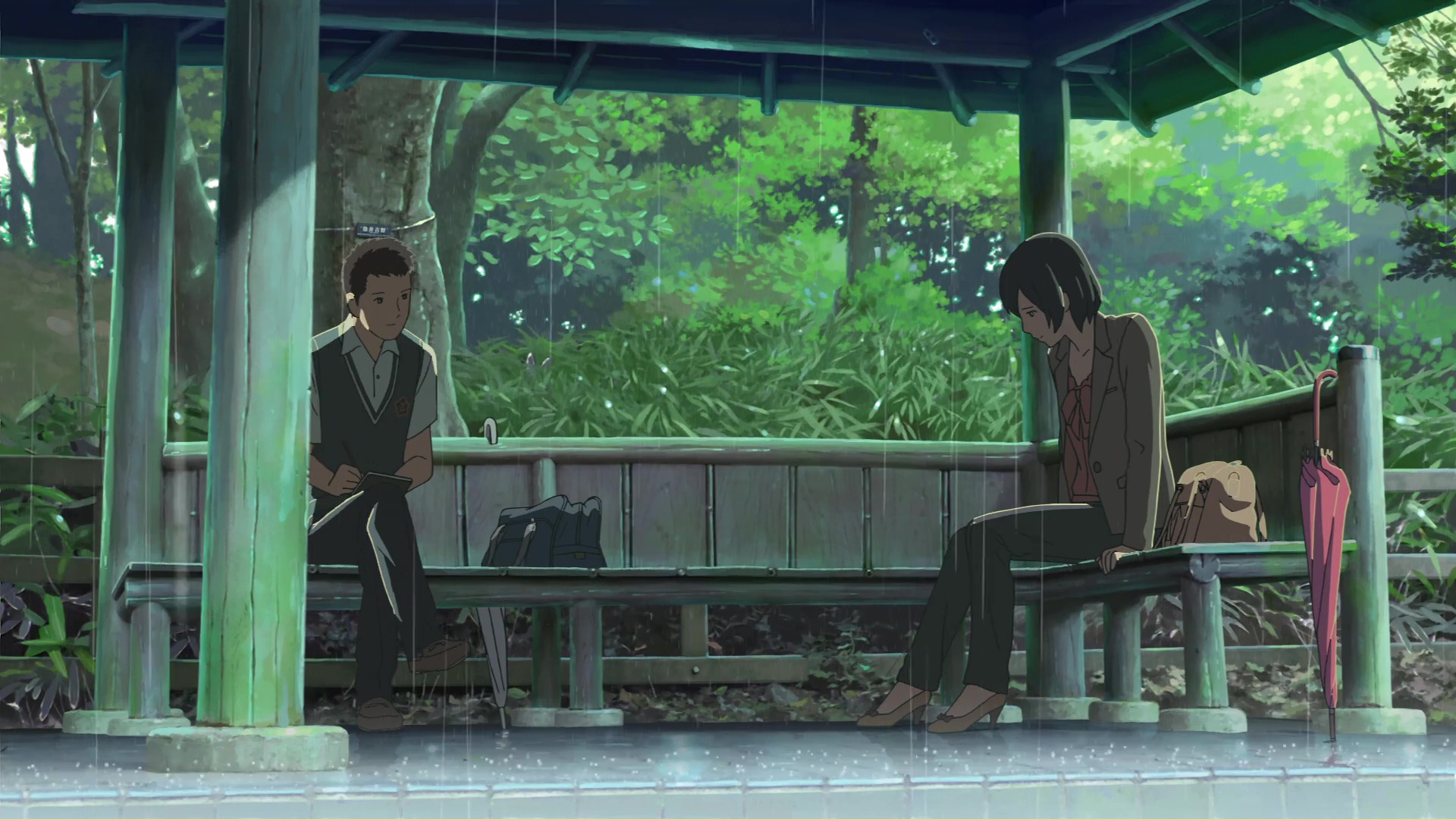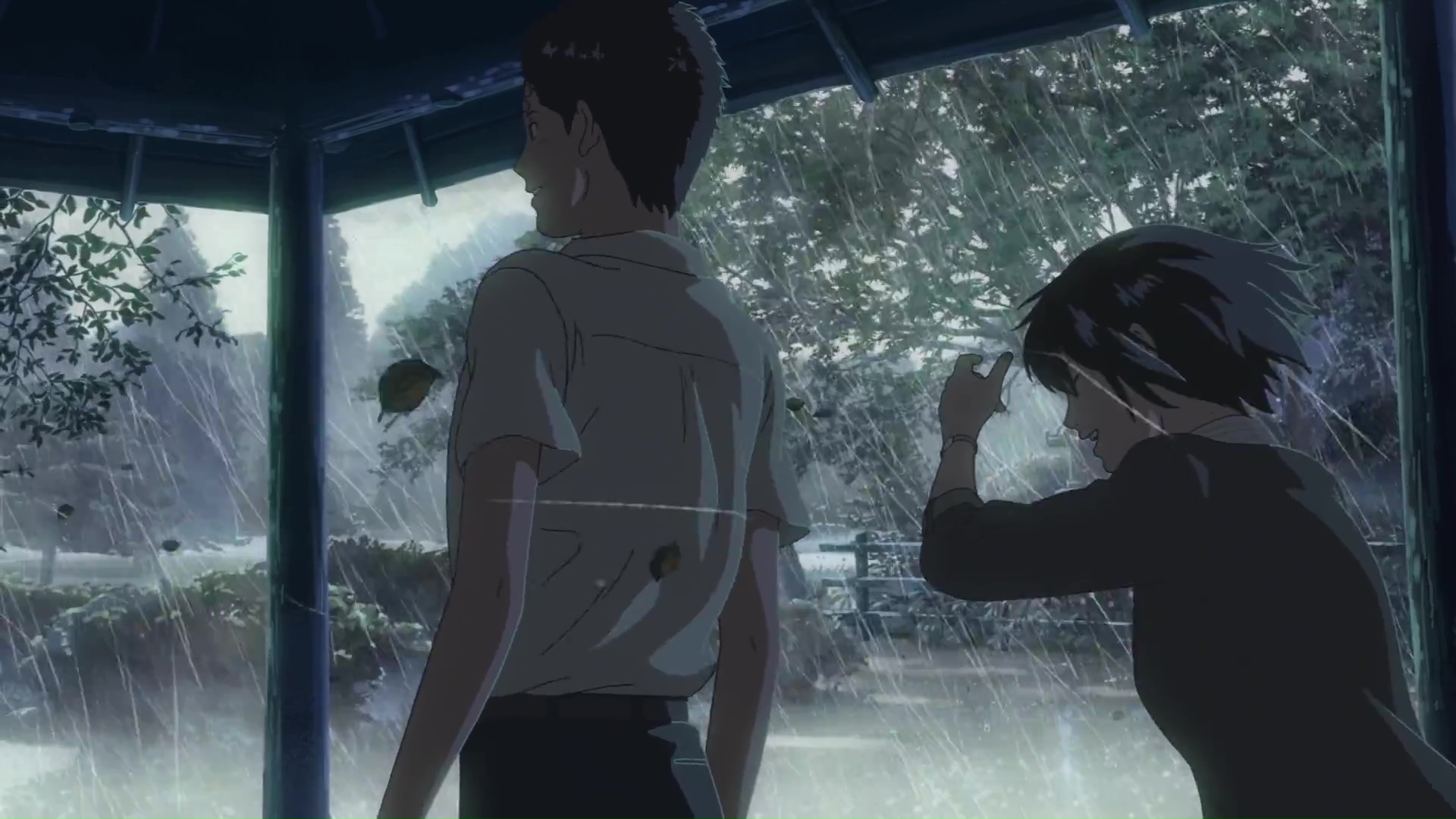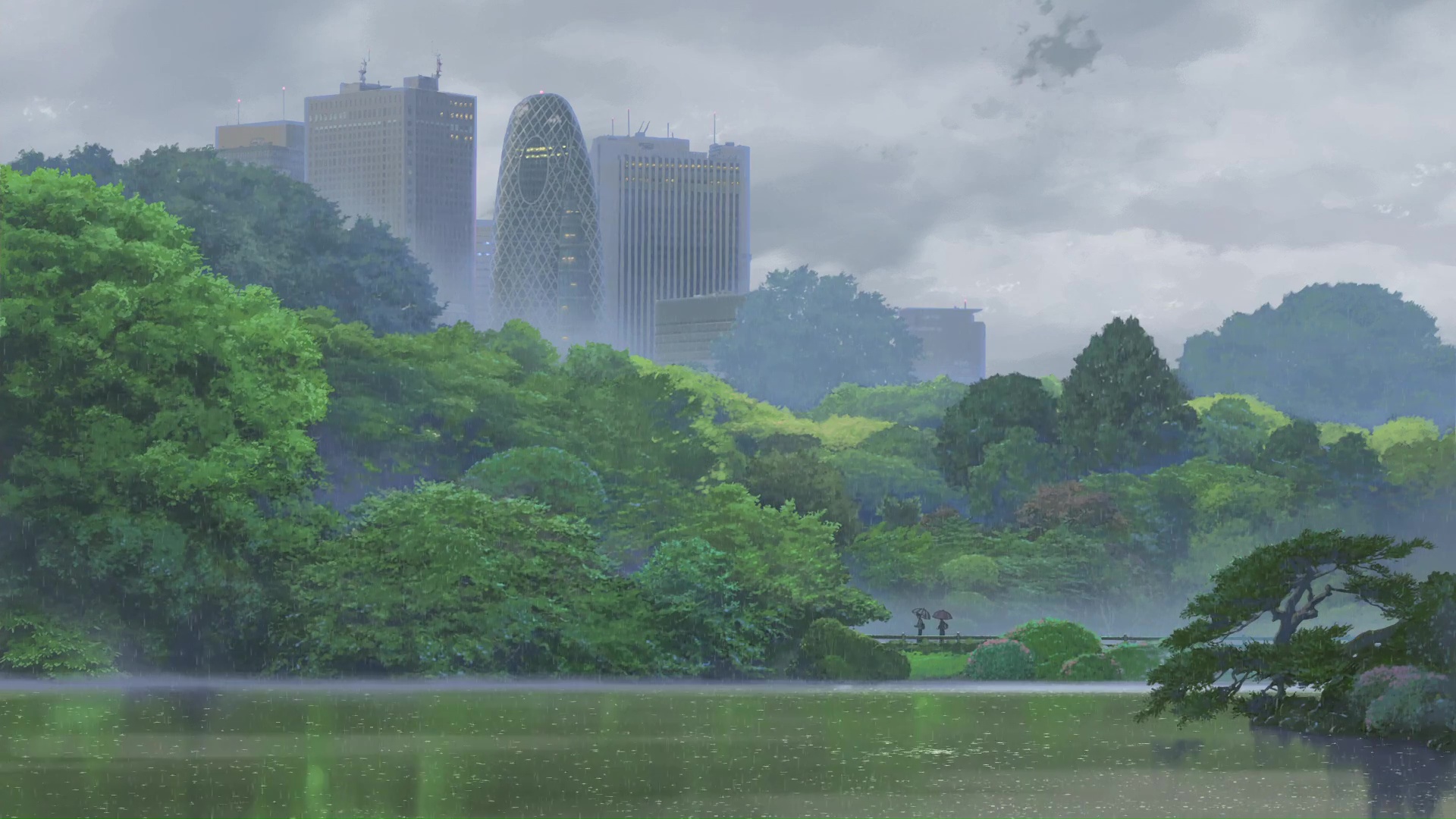
TYPE OF REVIEW ![]() : GOOD OL’ REVIEW
: GOOD OL’ REVIEW
No spoilers.

After watching Weathering With You, I decided to immediately jump into an earlier Makoto Shinkai work I had been meaning to watch for a while now: The Garden of Words (言の葉の庭).
And after watching Shinkai’s 2013 film, I can’t help but feel like it is able to present similar themes and imagery as Weathering With You, but in half the time and in a more affecting way.
The Garden of Words tells the story of first year high school student Takao Akizuki who meets an older woman, Yukari Yukino, at the park when he skips classes on rainy mornings. Though they never formally introduce themselves to each other, Takao begins to open up to her about his passion for designing shoes. One day, Takao learns of Yukari’s unexpected true identity and the climax of the film arrives when they confront their relationship and what they have been feeling in their own personal lives.
Again, it is to be expected that a Makoto Shinkai film features stunning animation and breathtaking visuals. The Garden of Words is no different. As most of the film takes place on rainy days in Shinjuku Gyoen National Garden in the middle of Tokyo, Shinkai is able to turn the rain into its own character. It is the catalyst to Takao and Yukari first meeting each other. And there isn’t necessarily any supernatural or mystical reason for it.
Instead, the film tells the story of two people, each with their own struggles, realized or not, who somehow find comfort on this shaded bench in Shinjuku Gyoen on rainy mornings.
Shinkai again uses breathtaking visual cues to highlight and emphasize the deeper and more emotional aspects of each character. Both Takao and Yukari seem more at ease on these rainy mornings in the garden. Whereas elsewhere and on days with much more favorable weather, they feel lonely, slightly lost and perhaps a sense of unfulfillment.

Later in the film, both Takao and Yukari come to the realization that they have been learning “how to walk” all this time. And despite their age gap, were both at similar points of uncertainty, longing and maturity. Now, they are able to walk out from under the shade sheltering them from rain and step forward to where they decide they want to be. And that is thanks to the time they’ve spent with each other.
The Garden of Words isn’t a typical romance drama. The focus, let alone the purpose, is not about some epic love story. Instead, it offers a look at the lives of these two characters in this moment in time. And it is a moment in which both help each other come to realizations and learnings that help set them off on their next paths. Perhaps that can lead to “love” in the future. But other than their age gap and other circumstances, both realize the points they are at in their lives. And from there, they can proceed forward.
It is difficult for me to avoid comparisons with Weathering With You which I watched the day before watching The Garden of Words. But where I felt Weathering With You was lacking in cohesion and depth, The Garden of Words successfully lays that foundation in such a short time.

Obviously, both films are very different in terms of plot and what they set out to be. But The Garden of Words is able to take its simple, but meaningful premise while being able to ensure both of our protagonists are fully realized characters. Characters who are relatable and whom one can form an immediate connection to.
And I think that’s where Makoto Shinkai is at his best. Most of his films deal with everyday life. His protagonists are people you may know. Or even you, yourself. The relatable and realistic situations can get thrown into fantastical adventures. But at their core, Shinkai’s best films are character-driven journeys through life.
At that, The Garden of Words more than gets the job done.
The Garden of Words is a stunningly animated and emotionally affecting film that is able to foster deeper connections in less time and with stronger characters.
